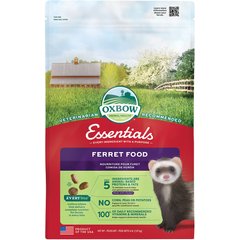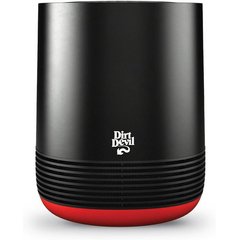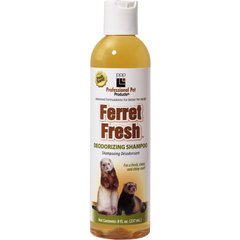Inflammation of the Mammary Gland in Guinea Pigs
Mastitis in Guinea Pigs
Mastitis is a condition in which there is inflammation of the mammary glands (milk glands), mostly due to infections with bacterial pathogens. Mastitis often occurs during the period when a female guinea pig's (also called a sow) offspring are suckling. Trauma, like cuts or scrapes to the mammary tissue, is one of the known causes of bacterial infections that can lead to mastitis.
Mastitis is a painful and serious condition, and without prompt treatment, the bacterial infection may spread to the sow's bloodstream, leading to other more severe complications.
Symptoms and Types
Mammary tissues may become:
- Swollen, red (inflamed) and tender
- Warm to the touch
- Enlarged and painful
- Bluish in color
- or excrete thick, bloody or clotted milk
Complications due to mastitis may also lead to a life-threatening systemic infection. Signs of this include:
- Fever
- Loss of appetite
- Dehydration
- Depression
- Lack of milk supply
Recommended Products
Causes
Mastitis is usually caused by a bacterial infection that has entered the tissue of the milk glands, either through the milk ducts or through an abrasion to the skin. This type of infection is most commonly seen during the period when the sow is nursing a litter of young. The sow is at higher risk when she is ill, undernourished, dehydrated, or is under stress.
Diagnosis
Newborn guinea pigs are born with their teeth intact, so it is possible that a minor abrasion to the mother's skin can take place as the result of normal nursing. The abrasion then becomes an open point of entry for bacteria, leading to mastitis, or infection, of the milk glands. For this reason, the mammary glands of the nursing sow should be observed frequently for injuries that may have been caused by the suckling of the newborns.
If the symptoms (listed above) of mastitis are present, the chance is good that your guinea pig has an infection, and will need to be seen by a veterinarian before the infection has an opportunity to infect the bloodstream, or before the milk ceases to flow and the pups die from malnutrition.
A diagnosis of mastitis can be determined by a combination of the history you are able to provide to your veterinarian, and by the symptoms that are observed. A sample of milk or fluid from the affected area can usually confirm the suspicion of mastitis. Blood tests may also be necessary for determining the exact nature of the infectious agent that is causing the condition, and the severity of the infection on the body, so that appropriate treatment can be provided.
Treatment
Your veterinarian may administer antibiotics to help control the bacterial infection. Anti-inflammatory and antihistaminic agents can also be administered to help reduce the inflammation of the mammary glands. If an injury is found, your veterinarian will cleanse and dress the wound with the appropriate topical (external) antibiotics and ointments.
Living and Management
The pups should not be allowed to feed from the sow while she is suffering from mastitis. If possible, the pups should be nursed by other lactating female, or hand fed by a human caretaker. Routinely administer the necessary antibiotics for the full course as directed by your veterinarian, and also follow any instructions for the regular dressing and treatment of the wound until the mastitis has healed.
Prevention
To prevent mastitis, make sure your guinea pig is well taken care of, her living quarters kept clean and sanitary, with bedding that does not cause irritation to the skin. Nutrition is especially important during pregnancy and nursing. You may need to feed your nursing sow slightly differently during this time, as well as making sure that she is being fed high quality feed, and always has access to clean water. It is also important to make sure that your nursing guinea pig is kept in a calm environment, away from household traffic or heavy activity, so that she is not unduly stressed.



